
Modalità
Overriding Tristate Pulsed Outputs
You override a pair of tristate pulsed output points to manually control the duty cycle of the outputs.
With the Home screen displayed, press the Enter key
.action_zoom_plus_stroke 
Highlight OUT .
action_zoom_plus_stroke 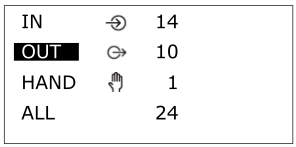
Press the Enter key
.action_zoom_plus_stroke 
Highlight the first tristate pulsed output point, which has an icon with a plus sign (
).action_zoom_plus_stroke 
action_zoom_plus_stroke 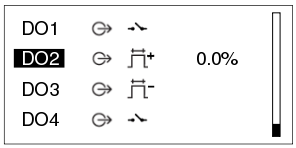
Press the Enter key
.action_zoom_plus_stroke 
Highlight the override value (Hand value).
action_zoom_plus_stroke 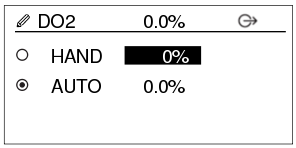
Press the Enter key
.action_zoom_plus_stroke 
Select the duty cycle value that you want to use initially when switching to the override mode (Hand mode):
Select [Value] percent to make the first tristate pulsed output point active (on) in [Value] percent of the pulse period.
Select 0 percent to make both tristate pulsed output points inactive (off).
Select -[Value] percent to make the second tristate pulsed output point active (on) in [Value] percent of the pulse period.
action_zoom_plus_stroke 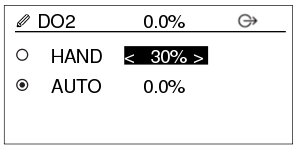
Press the Enter key
.action_zoom_plus_stroke 
Highlight HAND .
action_zoom_plus_stroke 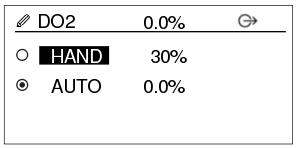
Press the Enter key
to switch to the override mode (Hand mode).action_zoom_plus_stroke 
Highlight the override value (Hand value).
action_zoom_plus_stroke 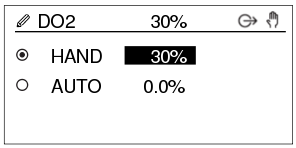
Press the Enter key
.action_zoom_plus_stroke 
Adjust the duty cycle value.
action_zoom_plus_stroke 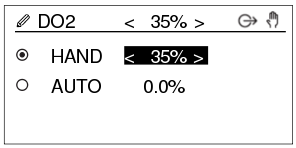
Press the Enter key
.action_zoom_plus_stroke 
action_zoom_plus_stroke 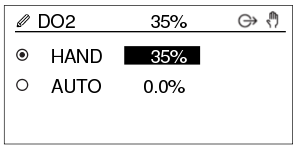
 Override Outputs
Override Outputs
 Keys
Keys
 Home Screen on AS-B Servers
Home Screen on AS-B Servers
 Home Screen on MP-C or IP-IO Module
Home Screen on MP-C or IP-IO Module
 I/O Filter Screen
I/O Filter Screen
 I/O List Screen
I/O List Screen
 Output Override Screen
Output Override Screen
 Icons
Icons
 Removing an Override for an Output
Removing an Override for an Output
 Allarme
Allarme



